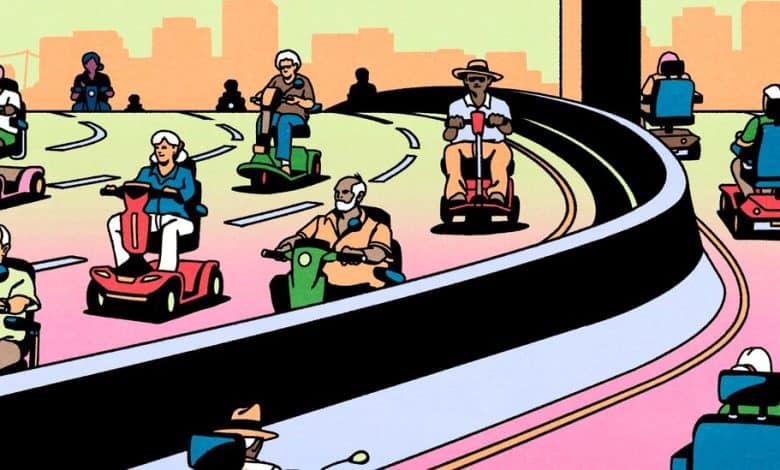We’re Not Asking the Most Important Questions About Age

After President Biden delivers his third State of the Union address on Thursday, much of the analysis will focus on the apparent signs of the president’s age. How alert does he seem? How spry? Does he look up to the task of running for office, or of governing?Questions like these certainly matter, but they are not the only ones we should be asking about age and aging right now. They are not even the most important.
As a historian who studies aging in America, I see this presidential contest as an opportunity for us to change the national conversation on aging. Right now, the mainstream discussion has focused on the capacities of two individuals, presuming throughout that old age is a problem and that the natural signs of aging are deplorable weaknesses. The problem is not that such a conversation is ageist — although it often is — but that it threatens to once again become the only one we have about aging in this election cycle. It stands in the way of the conversation that matters more: How can we ensure that older Americans, many of whom are vulnerable and precarious, are able to live healthier, happier and more dignified lives?
In a way, the persistent debate about Mr. Biden’s age represents a mass delusion that we are still a nation of the young. We have always liked to think of ourselves as the prototypical country of youth: a nation of plucky strivers, distinguished from the old country by our restless, creative spirit. Such a nation, we might think, ought to be led by someone young, or at least young at heart. Maybe this was even true, once. But it’s not anymore.
The age of the American president has gone up and down over time, but the age of the American public has not: We get older as a nation every year. The 2020 census showed that, between 2010 and 2020, the number of people over 65 shot up from 40 million to 56 million; this population grew five times as fast as the overall population, in a decade when the size of the under-18 population actually shrunk. It’s worth noting that the older population is also growing more ethnically diverse every year, as those who arrived as young people in the wake of the 1965 immigration reform head into their golden years.
Our political discussion should reflect this reality. Mr. Biden recognizes this.
In his previous State of the Union address, Mr. Biden devoted a fair amount of attention to old-age politics: Social Security and Medicare, of course, but he also called for an expansion of in-home health care services for older people. It is easy to dismiss this as pandering to an interest group that tends to vote. But it’s more than that: Old-age policies affect everyone. Affordable home health care aides, for instance, would primarily benefit the millions of middle-aged people, mainly women, who are currently doing most of the nation’s elder care for free. So when Mr. Biden talks about old age policy, as he likely will, he is laying out his plan to address one of the most important long-term trends challenging the nation.
